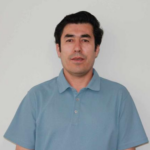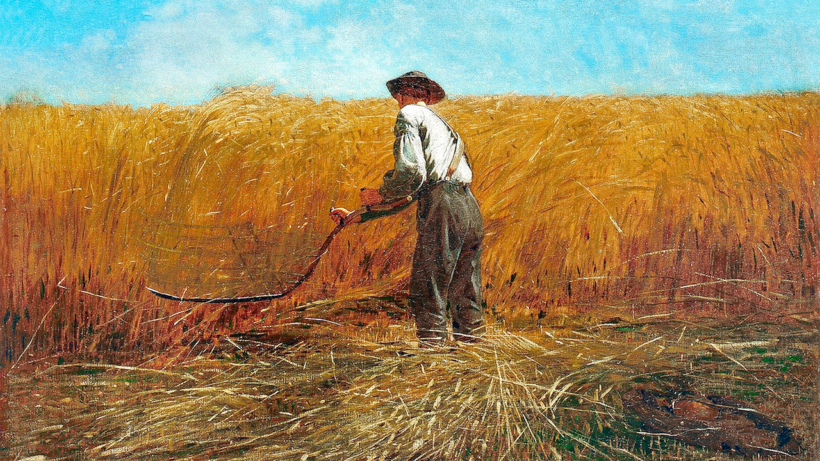A personal narrative by Reza Siar, a member of the Hasaras, one of Afghanistan’s marginalized minority goups, who fled after the US troops left and the Taliban took over.
Early morning, before the sun rose from behind the mountain on the east side of my village, I heard my mother calling me, “Reza! Reza! Wake up. Today you must go to Ambolaq.”
Ambolaq was the only source of irrigated water, a spring from where the water flowed out from under there to open the canal for the water to flow plot. Once every week the villagers were marked for their turn and it was our turn that day.
I woke up and prayed, thanking god for giving peace and prosperity to my family. Then shouldering the shovel, I departed for Ambolaq. When I got out of home, it was still very dark and quite scary. Walking up I was anxious of my surroundings. I was afraid of wild animals because I was still very young. The time I am talking about I was probably not more than ten.
That morning, like every day, on reaching the spring I opened the canal for the irrigated water. The sun slowly rose from behind the mountain by the time I returned home. I ate my breakfast while waiting for the water to reach to the plants. After breakfast, I went around to manage it. I was the only man in the house and had a lot of responsibilities to take care of even at the early age.
It was around 8:30 in the morning and I was busy irrigating the wheat plot—the nearest plot to my house—when I saw groups of people climbing up the mountain against our wheat plot that could be seen from where I was irrigating. I was irrigating, but at the same time keeping a watch on those groups of people passing the pass. My mind was busy thinking where they were all headed to; what was their destination. I was wondering if they were all off to some funeral but quickly rejected the premise. Had it been a funeral even my family would have been informed. Then I thought that they might have been invited by “Zawar” who had come from Iran and they are all probably going to greet him, but that too seemed less likely.
I was still busy thinking about them while irrigating the crop, when I heard a voice. Somebody was calling out to me: “Hey! Hey! Who is irrigating there. Why not answering? I will kill you if you do not answer. Come here. ” Someone continued spewing insulting words.
They were still some two to three kilometers away from me. I did not reply to them and pretended not to hear them. But nevertheless, I kept an eye on them and another on irrigating my field. I saw one of them coming towards me saying something which I was not able to decipher. What was he saying? Suddenly he put his gun on his shoulder and starred running towards me. He seemed to be a soldier serving the local dictator. I do not think he was a soldier by option, rather by force, and he had been dictated to gather people to the district center—the center where the warlords were based.
I had moved to the other side of the plot by now, keeping an eye on him all the time. When he reached the bottom of the valley, hidden by some rocks momentarily I lost sight of him. I kept busy with my work and noticed others waiting on the hill, looking at me. Sometimes they were shouting at me saying: “Hey! We are calling you…Why not answering?”
After almost three minutes, the man with the gun reached me. He didn’t care about the wheat grass (the bushes of wheat that came out of the ground before the harvest) and mercilessly trod upon them and came straight towards me. I was frozen, furious and shaking by now, but still kept my eyes on irrigating the crop and pretended not to have seen anything. He was not looking at anything else but me and was darting towards me like an angry lion. I found myself melting with fear.
I had no other thoughts running in my mind other than the wounds he would cause me and all the water that would be wasted if they dragged me away from the field. I was thinking of my broken bones and bloods, and how my plants, after seven months of hard labour, were to be ruined.
Suddenly I heard a cracking sound on my back and fell down on the ground in a thud. As I fell on my back I saw the angry face of the man coming down to beat me with his gun and his feet. He was not saying anything, neither was I able to ask him the reason as I knew even if I asked him anything there would be no answers.
The man beat me until he got tired and I just lay crumbled at his feet, crying. After he got tired, he shouted at me and said, “Stand up and move!” He neither allowed me to change my clothes nor inform my family that I was been hailed up and taken away. Luckily, I did not feel that much pain because I was already numb with fear. I was also thinking of the utter waste of the water and how to save my crop which the only thing I had to feed my family until the next harvest. Most of the time because of the hot and dry weather, wheat plants were not able to survive until next turn, so I was more than anything worried about losing the harvest.
Finally, when I felt that he was tired, I begged him for my freedom, explaining the importance of the day to him. I tried to explain how the water came to our village plots by turn, once a week. it was my turn, so if I missed it this time we would have to wait for one more week until the next turn. If we lost that important day, and if I did not irrigate that day, we would lose the harvest. But it seemed he never heard my voice and started beating me with renewed vengeance. When he finally allowed me to stand up again I managed to slip from his hand and yelled: “Mother! I am going to Ulqan please ask somebody to irrigate the land.”
Hearing my scream my mother peeped out from the window of our house and saw the scenario. I had gone a kilometer, when I saw my mother running after us, crying, but I was not able to understand what she was saying to them or to me.
When I reached Ulqan, the center of the districts I saw hundreds of people gathered there. Most people seemed unprepared like me. I saw hungry and thirsty people with no food to eat and no water to drink, lined up along the street under the burning sun, and rounded up by the gunmen and guards. I was curious why so many people were gathered there and what was the purpose. I finally asked one of my fellow men, standing beside me, “What is happening here?”
“I think some big shot has come from Bamyan or maybe Kabul,” he replied.
There were different groups aside from the public who had been brought up there to please the “leader/guest” who had arrived from Bamyan/Kabul. People were set apart in four groups: public, politicians, girl students from girls’ schools and boy students from boys’ schools. Students both girls and boys were singing songs o welcome the guest.
I was too small to understand what the guests had come for and what they spoke about to the people of Shahristan District. All I heard was a name: Ustad Waezi. A name etched in my memory forever.
Years later, when I was 19 years old, I went Kabul for my Kankor examination, and gathered that Waezi was one of the founding members of Hezbe Wahdat Party and a prominent warlord fom Afghanistan. I had instantly recalled that fateful day when I was a forced participant of the most bizarre welcome ceremony. It was also one of the scariest moments of my childhood days that leaves me shuddering in fear, even though I have been beaten and tortured so many times by the soldiers since then.
About the Author:

Reza Siar hails from the remotest and poorest province of Daikondi in Afghanistan. He is a member of Afghanistan’s marginalized Hazara minority, a community tragically marked by historical atrocities and genocide. Rising above the adversities of his early life, Reza Siar transformed himself into a beacon of hope and determination. His life’s journey is a testament to the indomitable human spirit, representing the power of education, perseverance, and the enduring strength of the Hazara people in the face of adversity. He is one of the thousands who fled Afganistan and now lives in Lives in Auckland, New Zealand.
References:
Hasht-e-Subh Daily. (2022). Protesters Around the World Demand to “Stop Hazara Genocide.”
https://8am.media/eng/2022/10/16/protesters-around-the-world-demand-to-stop-hazara-genocide/.
Mohammadi, S. & Askary, S. (2021). Why the Hazara people fear genocide in Afghanistan?
https://www.aljazeera.com/opinions/2021/10/27/why-the-hazara-people-fear-genocide-in-afghanistan.
Paiman, N. (2020). The Hazara Genocide and Systemic Discrimination in Afghanistan. https://civilrights.org/blog/the-hazara-genocide-and-systemic-discrimination-in-afghanistan/.
Siddique, G. S. A. Afghan Hazaras Fear The Worst After Forced Taliban Evict.
https://www.rferl.org/a/afghanistan-hazaras-taliban/31496224.html










